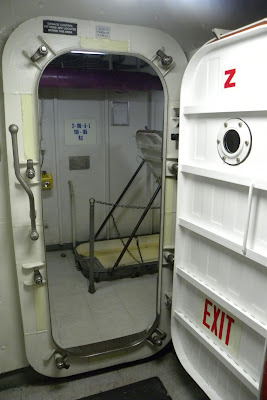My taxes are too high, preach the politicians, trying to help their rich cronies and corporations who financed their way into office and who greedily want to pay less than their share.
I was grumbling about those taxes as I got up in the morning, turned on the tap and out flowed clean, safe water, ready to drink or brush my teeth. I opened my refrigerator and poured milk, passing government health standards for purity, into my cereal, which also meets government standards for health and nutrition. I brushed my teeth with toothpaste guaranteed to be safe by the same tax-financed government.
No dysentery from the water, milk, food, or toothpaste.
I complained about my high taxes as I took vitamins and medicine, all guaranteed to meet government standards and do what they were prescribed for, by government-licensed pharmacists, on orders of government -licensed physicians.
No snake oil making wildly inflated claims, or witch doctors using hocus-pocus.
I whined about my high taxes on the way to the grocery store in heavy traffic. I stopped at several intersections, regulated by traffic lights installed by the government. The streets were paved and repaired with tax funds. Unseen storm and sanitary sewers were built with the same funds. My government-licensed car and its various parts met government standards, and the gas I put into it had passed government standards for quality. The government insured the insurance on my car for financial responsibility. I, and almost all drivers, carried a government license in my pocket certifying my ability to drive.
I was griping about my taxes as I bought canned goods, vegetables and fresh meat…all inspected and meeting government standards for quantity, cleanliness, and purity.
No cows’ heads butchered three days ago hanging in a hot, open market with flies buzzing around.
Overhead, I saw jet liners coming into land, all regulated by the tx-supported federal government, with controllers trained and paid by the same government.
On the way back home, I thought about those high taxes as I saw a line of yellow buses unloading lines of children at a public school, where they’re guaranteed a government-financed education from teachers who meet and surpass government qualifications for ability, education, knowledge and character. Students with handicaps, special mental needs, and from all classes and races and religion were welcome, thanks to the government.
No schools taught by just anyone who shows up, teaching anything that comes to mind, or a political viewpoint, or schools just for the rich or privileged who could afford private schools with emphasis on maintaining exclusionary classes and races and religions.
I thought about those taxes when I stopped at the pharmacy and saw elderly people on fixed incomes buying medicines they couldn’t afford, thanks to the government’s Social Security and Medicare programs. I saw a lot of poor people lining up with food stamps to buy groceries to feed hungry children.
I thought about my taxes as I zoomed down a government-financed Interstate at 70 mph, crossing several state lines in 10 hours, in spite of heavy truck traffic, all meeting federal safety standards for equipment, load and driver training. Government-trained police patrolled the highways, insuring safety and order, and help in times of emergency.
No dumpy little roads that may not be passable, with checkpoints at every border, maintained by dangerous armed guards who may not let you pass even if you have the right papers. No armed thugs to hijack you and leave you for dead.
I thought about my high taxes as I stopped in a tiny town in a remote desert, far away from home, and put a letter in the mail box, knowing it would be delivered 3,000 miles away within three days, without being ripped open and read at will, and delivered whenever, if at all.
I thought about those taxes when I saw firemen responding to a house fire, with an ambulance and police cars already at the scene. When I got home, I turned on the lights, meeting tax-supported standards for safety and quality.
I thought about those taxes when multi-million-dollar U.S. Air Force jets zoomed overhead. Each fighter burns $1,000 of jet fuel an hour. My taxes won’t even pay the salary of one pilot.
And despite terrorism, there’s no war in the streets, or fear of an invader cutting my throat, killing children, raping women, throwing people in concentration camps.
I thought about those taxes as I passed a tax-funded national cemetery, filled with row upon row of white graves.
Overhead the American flag waved in the breeze, free as I am.
My taxes too high? Who are they kidding? Not me.























































